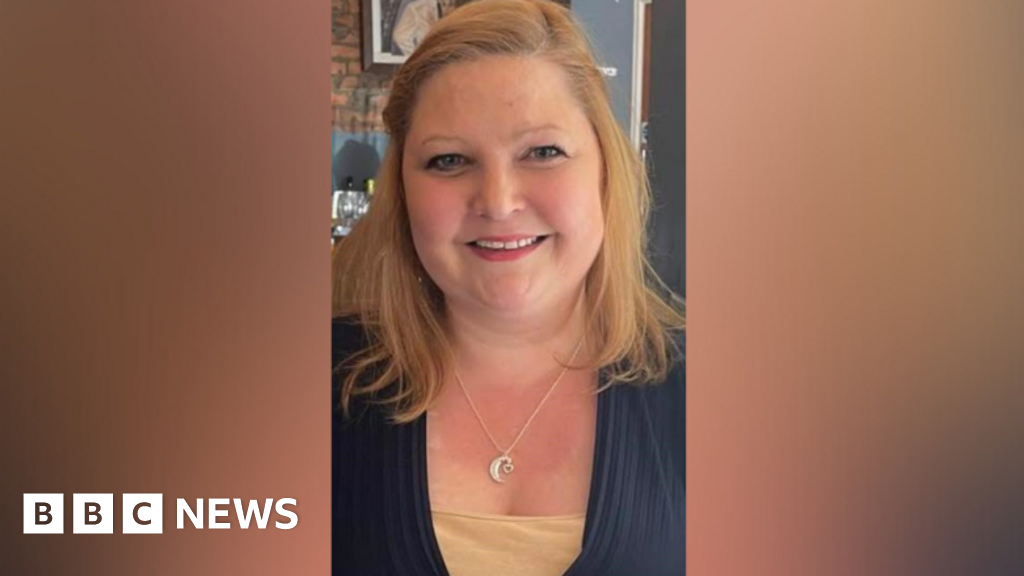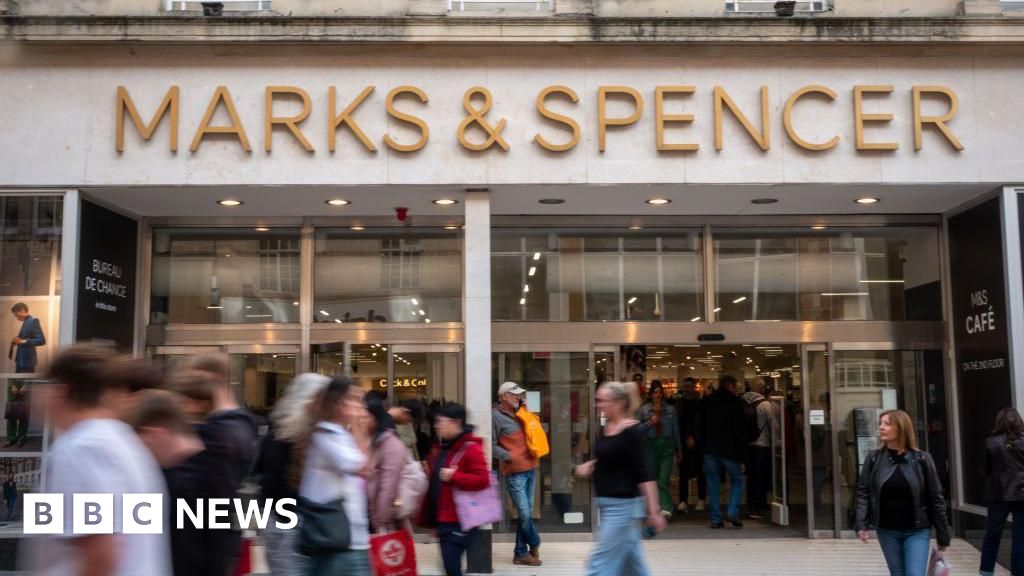ARTICLE AD BOX
By Rebecca Wearn
Business reporter, BBC News
Charlie uses less cosmetics than she used to
"Before, you wouldn't have caught me picking up a pint of milk without my face on," says Charlie, who works for a training business.
But then the pandemic struck and now she just doesn't wear as much as she used to, even to work.
"I was stuck at home furloughed with two kids, my husband was away, so I spent a lot of time outside without make-up on, and realised no one cares," she explains.
Charlie feels the pandemic has given her the confidence to embrace a more natural look. And it seems she's not alone.
The use of cosmetics was already declining before 2020, but a survey of 10,000 British women by market research firm Kantar has revealed big changes to post-lockdown beauty routines.
Make-up purchases and frequency of wearing products has dropped steeply in the last two years, by almost a third, it suggests.
Colleagues of Charlie's at Rhino Safety, on the outskirts of Sandbach in Cheshire, agree.
Director Cate Walter admits she splurges on getting her nails and eyebrows done. But her daily regime is minimal; a bit of blusher and maybe mascara for a day in the office.
"I just don't want to look ill," she jokes.
Although the business has a relaxed feel, Cate says she has definitely noticed a change since staff started working remotely.
"You do not need to spend as much time on your appearance, especially as you're potentially only seen from the waist up anyway," she says, adding that being fully made-up is not something she, nor many clients, expect.
"I'm not going to expect you to be in a full face of make-up and a suit when you're essentially sat at your kitchen table," she says.
Changing habits
Kantar surveyed 300,000 women worldwide, as well as looking at spending data, and found that British women have made the biggest change in their grooming habits in recent years.
Cate Walter says she doesn't expect staff to wear a lot of make-up especially if they are working from home
"Manufacturers are going to struggle and they're really going to have to work harder to get our money from us," said Kantar analyst Maya Zawislak.
Their research shows a 19% fall in make-up sales since 2019, but the pandemic is only part of the story.
Ms Zawislak adds that a looming cost-of-living crisis could also affect what consumers buy.
The cosmetics industry is struggling on two fronts. As the squeeze on all our budgets really starts to bite people are looking for ways to cut their spending.
But the pandemic has also given some women the self-confidence to try going make-up free, or to let their hair go grey.
Skin care products have not seen the same decline as cosmetics though, as we've moisturised with enthusiasm after all the anti-bac gel. And self-care has become an important buzz word in these difficult times.
Overall it seems people are reluctant to spend on what might be seen as frivolous, but happier to splurge on something that feels like it's doing them good.
Historically, economists would say that lipstick sales thrive during difficult economic times. Typically, this little luxury might have been a way for cash-strapped consumers to treat themselves.
But this time the use of masks and remote working has seen the sale of red lip products fall by 40%.
On the other hand, rather than just buying less, some people have switched to different products.
"I probably buy less now, but maybe higher-end price products," says Charlie's colleague, Julie Hopwood.
Julie uses a tinted moisturiser plus a bit of eye-shadow. "I think eyes did become more important when we were all wearing masks," she explains, adding that she has felt inspired to try new things, watching tutorials online during lockdown.
Both Julie and Charlie spend about half an hour getting ready for work and maybe an hour at the weekend. Changes to their morning routine mean they can spend time going to the gym or with family instead.
The relaxation of what we wear to work started long before the pandemic for many sectors. But it appears to have accelerated during the pandemic, so much so that last month the Office for National Statistics removed men's suits from their "typical" basket of consumer goods.
The question for the cosmetic industry, and for related areas such as workwear, is whether these new habits will stay or fade as fashions and behaviours shift.
Sarah Finn, for one, hopes they stick.
"I used to be the odd one out, because I didn't wear make-up," she says. "I get up, get showered and I'm out of the door."
Now, no-one else seems to be wearing make-up either, says Sarah, and possibly, like her, they'll decide they'd rather keep the morning lie-in.

 3 years ago
53
3 years ago
53








 English (US) ·
English (US) ·